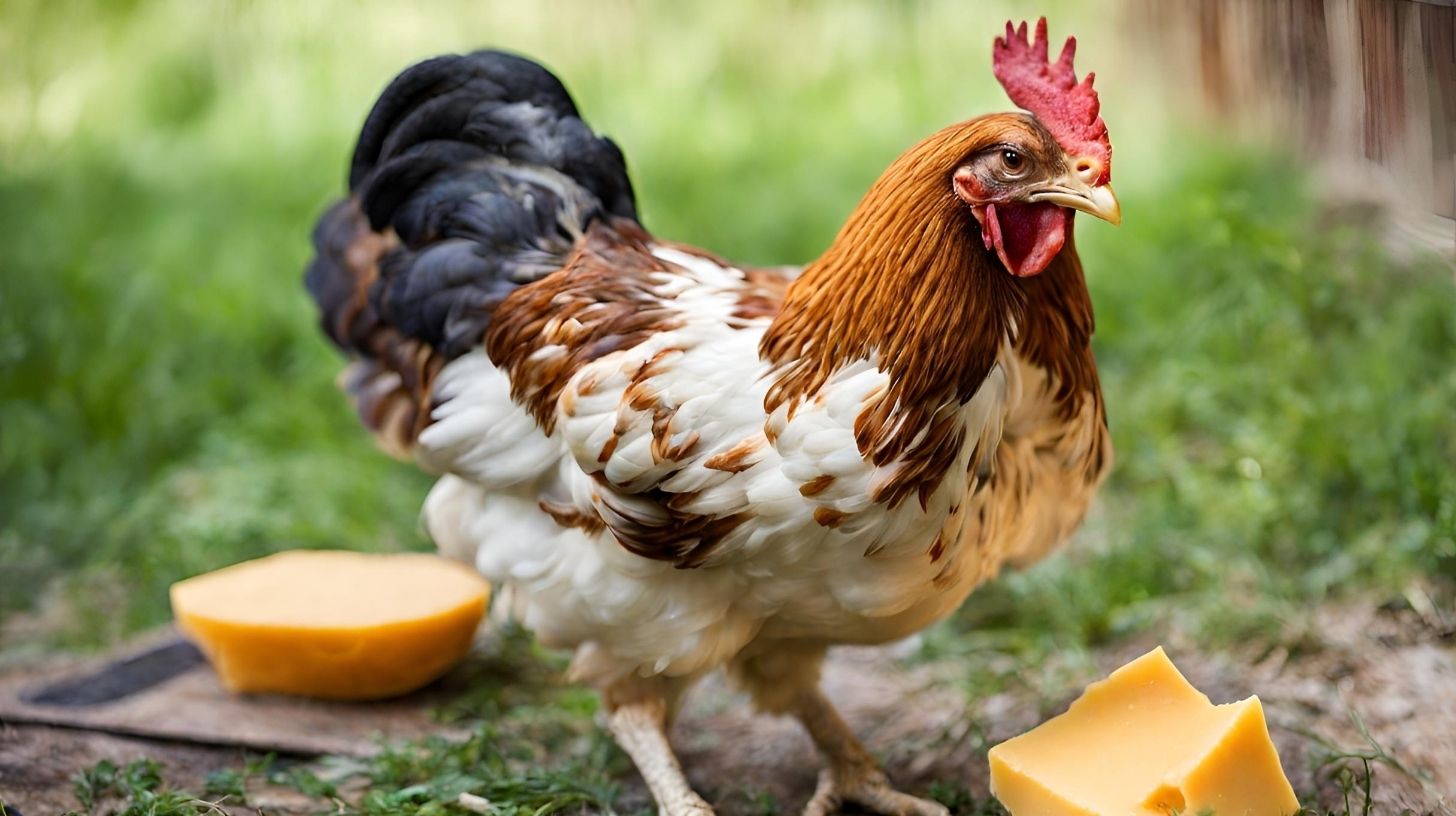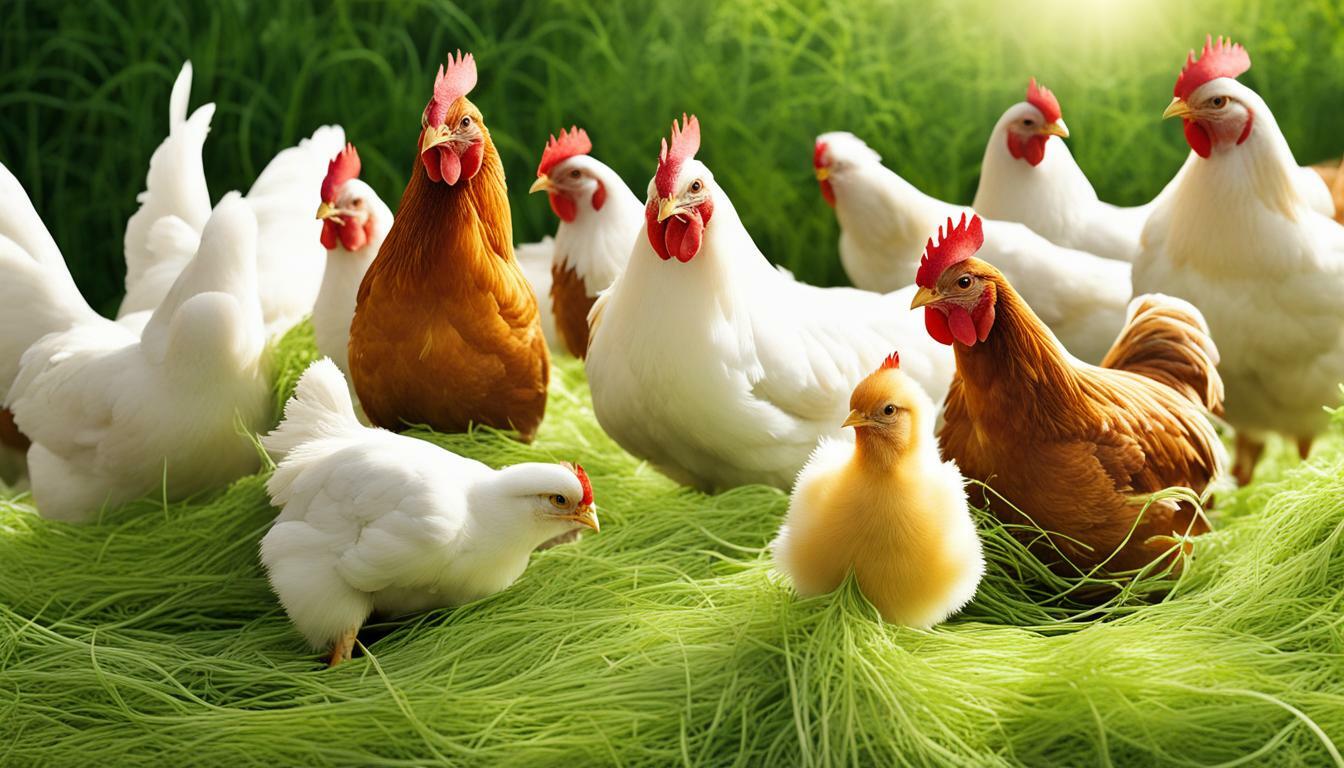Can Chickens Eat Elderberries? Your Friendly Guide to Poultry Diets

Table of content:
- Are Elderberries Safe for Chickens?
- What Fruits and Vegetables Can Chickens Eat?
- What Human Foods Are Dangerous for Chickens?
- Do Chickens Like the Taste of Elderberries?
- What are the Benefits of Feeding Chickens Berries?
- How Many Elderberries Should You Feed a Chicken?
- Should Elderberries Be Cooked Before Feeding to Chickens?
- Can Chickens Eat Other Types of Berries?
- What Parts of Elderberry Can You Feed Chickens?
- Are There Any Precautions With Feeding Elderberries to Chickens?
- Final Thoughts
Elderberries are gaining popularity for their potential health benefits, but can chickens eat elderberries too? As a chicken owner, you likely forage around your yard looking for tasty treats to supplement your flock’s diet. Keep reading to learn everything you need to know about feeding chickens elderberries.
Are Elderberries Safe for Chickens?
Elderberries are considered safe for chickens in moderation. Both the berries and flowers of the elderberry bush offer nutritional value. Elderberries contain antioxidants, vitamin A, vitamin B6, iron, and potassium. These nutrients can support a chicken’s immune system and organ function.
However, elderberries do contain traces of cyanide. While the small amount typically found in the berries is not harmful to chickens, overindulging could cause diarrhea or digestive upset. Elderberries should be fed as an occasional treat.
It’s best to introduce new foods slowly to monitor for any adverse reactions. Start by feeding chickens just a few elderberries at a time. Gradually increase the amount over a period of 2-3 weeks while assessing the health of your flock.
What Fruits and Vegetables Can Chickens Eat?
Chickens are omnivores, meaning they enjoy a diverse diet beyond standard chicken feed. In addition to grains, chickens benefit from fruits, veggies, insects, and protein sources.
Some chicken-safe fruits and veggies include:
- Apples
- Bananas
- Berries – blueberries, raspberries, elderberries
- Broccoli
- Cantaloupe
- Carrots
- Cucumbers
- Grapes
- Kale
- Lettuce – romaine, iceberg
- Peas
- Pumpkin
- Spinach
- Squash
- Sweet Potatoes
- Tomatoes
- Watermelon
Fruits and vegetables provide key vitamins, minerals, and phytonutrients. Offering a variety also adds enrichment to a chicken’s daily activities. Chickens enjoy pecking, scratching, and foraging for tasty morsels.
What Human Foods Are Dangerous for Chickens?
While chickens can eat a diverse diet, some human foods should be avoided. Foods to keep away from chickens include:
- Alcohol
- Avocado
- Chocolate
- Citrus fruits
- Dried beans
- Garlic
- Onions
- Potato skins
- Processed foods
- Salty foods
- Sugary treats
These items may cause digestive upset or toxicity. It’s also best to avoid cooked foods, as chickens cannot properly digest them. Only offer chickens fresh, unprocessed fruits and veggies appropriate for their digestive system.
Do Chickens Like the Taste of Elderberries?
Most chickens find elderberries to be a delicious treat! Chickens use their keen sense of sight and smell to forage for vegetation. The bright purple and red elderberries catch their eye while roaming about.
Chickens seem to enjoy the sweet yet tart flavor of ripe elderberries. They will happily gobble them up right off the bush. You can also collect berries to serve in a bowl or scatter them in the pen. Offer elderberries as an infrequent snack to keep your flock interested.
What are the Benefits of Feeding Chickens Berries?
Berries like elderberries, blueberries, and raspberries offer valuable health benefits:
- Antioxidants – Berries contain antioxidants called flavonoids, which can boost the immune system and overall wellness.
- Nutrition – Berries provide key vitamins and minerals like A, C, E, and B complex, iron, calcium, and selenium.
- Natural Treats – Berries satisfy a chicken’s foraging instinct while adding excitement to their diet.
- Colorful Eggs – Certain berries may produce richer colored egg yolks over time.
- Modifies Behavior – Pecking at berries can help prevent boredom and aggressive behaviors.
Berries are low in calories so can be fed as snacks. Offer a variety of berries to provide a spectrum of nutrients.
How Many Elderberries Should You Feed a Chicken?
Elderberries should be fed to chickens in moderation, ideally just 1-2 times per week. Here are some guidelines for how much to feed:
- For adult hens, provide 1⁄4 cup – 1⁄2 cup of elderberries maximum per chicken. Adjust amounts based on the size of your chickens.
- Feed berries by scattering on the ground or serve in a communal bowl where chickens can share.
- Remove any uneaten elderberries within an hour to prevent spoilage.
- Offer berries as an occasional treat, not a daily dietary staple.
- Start with small amounts of berries at first to observe any adverse reactions.
- Increase the quantity gradually over a few weeks as chickens adjust to elderberries.
- Reduce or eliminate berries from the diet if chickens develop loose stool indicating digestive upset.
Should Elderberries Be Cooked Before Feeding to Chickens?
Elderberries can be fed to chickens raw or cooked. Raw elderberries retain the highest level of nutrients, minerals, antioxidants, and beneficial enzymes. Chickens’ digestive systems are designed to break down uncooked berries.
However, cooking elderberries first may offer some advantages:
- Cooked elderberries are softer and easier to digest.
- Heat helps neutralize traces of cyanide in elderberries to an insignificant amount.
- Cooking elderberries into jam, jelly, juice or baked goods allows you to easily mix into feed.
- Cooked berries can be stored refrigerated for 1-2 weeks, allowing more convenience in feeding.
In the end, offering a combination of both fresh and cooked elderberries can help maximize nutrition. Just be sure cooked elderberries contain no added sugar, salt, or other spices.
Can Chickens Eat Other Types of Berries?
Yes, chickens can eat other berry varieties beyond elderberries. Chickens enjoy sampling an assortment of berries for exciting flavors and textures. Berries to offer chickens include:
Blueberries
Blueberries have the highest antioxidant levels of all common berries. They provide vitamin C, manganese, and fiber. Feed chickens 1⁄4 to 1⁄2 cup of blueberries up to twice weekly.
Raspberries
Raspberries contain antioxidants, vitamin C, manganese, and iron. Their soft, easily digestible flesh makes them a great chicken berry. Give chickens a few raspberries 2-3 times a week.
Strawberries
Strawberries offer vitamin C, manganese, and folate. Chickens relish their sweet flavor. Feed up to 1⁄2 cup of strawberries in moderation. Limit intake if diarrhea occurs.
Blackberries
Blackberries are packed with fiber, vitamins, and minerals like vitamin K, magnesium, and potassium. Scatter a handful of blackberries for chickens to peck at and forage.
Gooseberries
Gooseberries provide vitamin C and calcium. Feed chickens a few gooseberries once or twice a week to add beneficial nutrition. Introduce slowly to avoid diarrhea.
Currants
Currants have antioxidants, vitamin C, and iron. The small, tart berries are chicken favorites. Sprinkle 1-2 tablespoons of currants into feed just 1-2 times weekly.
Feed chickens a variety of berry types and colors to provide a diverse nutritional profile. Always monitor for adverse reactions when introducing new berries. Only feed properly rinsed, ripe berries in moderation.
What Parts of Elderberry Can You Feed Chickens?
Chickens can eat all parts of the elderberry bush, including:
- Berries – The ripe, dark purple, or red elderberries offer the most nutrition. Only feed ripe, undamaged berries.
- Flowers – The small, white elderberry flowers contain bioflavonoids and can be eaten.
- Leaves – Chickens can forage on young, tender elderberry leaves. Avoid old leaves as they may contain cyanide compounds.
- Stems – The soft green stems can be pecked at by chickens. Avoid old, tough stems.
While chickens can eat all elderberry plant parts, the berries themselves have the highest nutritional value and appeal. Only allow chickens access to unchecked, chemical-free elderberry bushes. Monitor forage time to prevent overconsumption of leaves and stems.
Are There Any Precautions With Feeding Elderberries to Chickens?
Elderberries are generally safe for chickens but do require some simple precautions:
- Introduce slowly and in small amounts to start.
- Only feed ripe, high-quality berries. Discard moldy or damaged berries.
- Never feed chickens elderberry leaves, stems, or berries that have been sprayed with chemicals. Stick to untreated elderberry bushes.
- Cooked elderberries may be safer since heat helps neutralize traces of cyanide compounds.
- Avoid overfeeding. Stick to recommendations of no more than 1⁄2 cup elderberries per chicken, 1-2 times per week max.
- Monitor chick health after consuming elderberries for the first time and with higher amounts.
- Eliminate berries from the diet if any chickens experience diarrhea or other negative symptoms.
- Prevent chickens from browsing freely on elderberry bushes to avoid over-ingestion of cyanide present in leaves and stems.
Following basic precautions allows chickens to gain benefits from elderberries while avoiding potential adverse effects. Get to know your flock’s tolerance and adjust elderberry amounts accordingly.
Final Thoughts
When fed in moderation, ripe elderberries can serve as a nutritious and delicious treat for backyard chickens. Chickens gain antioxidant power from elderberries to promote immune function. The berries satisfy their natural foraging urge as well. Introduce elderberries slowly while monitoring your flock for any negative reactions. Feed no more than 1⁄2 cup, 1-2 times weekly as an infrequent snack. Both fresh and cooked elderberries can be offered for variety. Follow basic precautions and your chickens can safely enjoy the flavor and nutrition of elderberries from time to time.
Welcome. I’m Adreena Shanum, the proud owner of this website, and I am incredibly passionate about animals, especially poultry. I founded adreenapets.com as a labor of love, stemming from my desire to share my knowledge and experiences with poultry enthusiasts worldwide.




